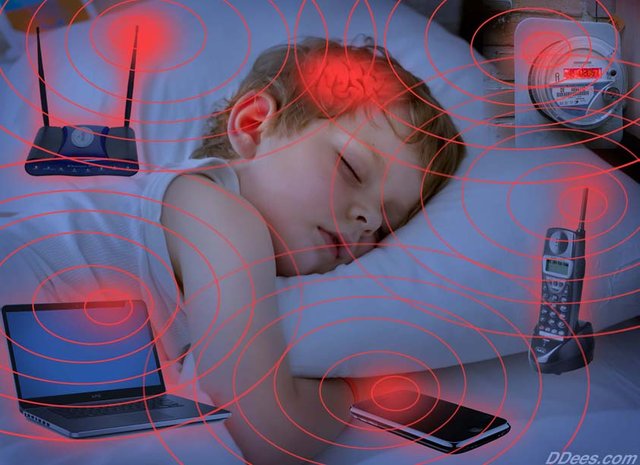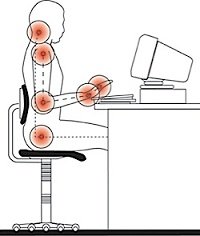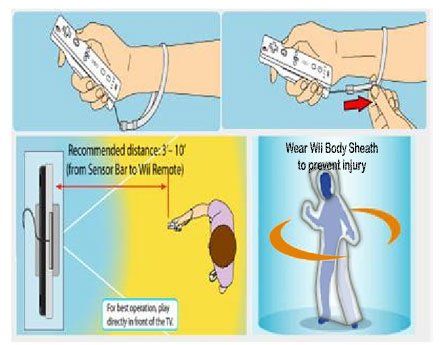10 illnesses brought on by our addiction to modern technology
IF YOU'RE the sort of person who spends more time texting than talking, be warned - you could even be doing it in your sleep.
That's the claim from Australian sleep expert Dr David Cunnington, who says people leading busy lives are often unable to switch off at night and end up picking up their phone while still asleep and sending garbled text messages to colleagues, friends and relatives.
Those sending the texts have no recollection of doing so, but have been advised by Dr Cunnington that they need to lower their stress levels and make sure they get a good night's sleep.
But it's not the only illness which can be linked to modern technology.
Here are 10 others:
ELECTROMAGNETIC HYPERSENSITIVITY
From wi-fi to mobile phone signals, we're surrounded by wireless communications and, for some people, exposure to electromagnetic fields is making them ill.
Symptoms range from acute headaches and skin burning to muscle-twitching and chronic pain.
It's estimated five per cent of Americans believe they suffer from the condition and some have gone as far as moving to areas where wireless communications are tightly controlled in a bid to escape the problem.

FACEBOOK DEPRESSION
Earlier this year, an influential group of US doctors warned that teenagers were becoming obsessed with Facebook, to the detriment of their health.
The American Academy of Paediatrics claimed that youngsters who are ignored on social networking sites take it harder than if they are shunned in real life.
The organisation warned about risks posed to a child's mental health by cyber-bullying and said that prolonged use of some websites can affect sleep patterns and levels of self-esteem.

REPETITIVE STRAIN INJURY
It used to be factory workers, dressmakers and musicians who were most at risk from repetitive strain injury. But now office workers can suffer from the condition after spending too many hours using a keyboard.
Repeated use of fingers, wrists, arms and shoulders can lead to damage which, over time, the body is unable to repair. That's why preventative steps, such as regular breaks, are advised.

PHONE HEADACHES
For years the debate has raged over whether mobile phones are harmful, but studies have shown there is a link between headaches and mobile use.
Research commissioned by phone manufacturers in 2008 found that making a call shortly before going to bed can affect quality of sleep, which can lead to headaches the next day.
Parents have been urged to monitor their teenage children's use of phones late at night.

INTERNET ADDICTION

Psychiatrists now offer treatment for internet addiction - and have treated patients who say that the online world has taken over their lives.
According to US psychiatrist Jerald Block, the condition should be viewed as a clinical disorder, as growing numbers of people become addicted to gaming, internet porn and emailing and texting.
HEARING LOSS

While most technological illnesses have arrived in the last 10 to 15 years, it's been more than 30 years since concerns were first raised that people could damage their hearing listening to loud music on personal stereos.
The iPod may have replaced the Walkman, but the concern remains the same and France has banned manufacturers from selling gadgets capable of producing sounds above a certain level.

Wii INJURIES

When Nintendo's Wii was first released, people of all ages were keen to try the novel "wand" controller that replaced the old-fashioned keypad.
The problem was that many people enjoyed playing games such as Wii Tennis so much that lengthy sessions left them with muscle strains.
3D HANGOVERS

An American Association of Optometrists study discovered problems relating to 3D televisions and gaming.
A quarter of users reported eye strain, blurred vision, dizziness, headaches or nausea after viewing 3D content.
Those who suffer from motion sickness are particularly vulnerable due to the visual trickery employed due to the visual tricke by byby the technology.


nice work bro @rajatgaur keep it up
great work buddy thank for your comment in account. @banjo
wonders what incites the delusional part of your brain.
These are the silent killers. We must use the technology wisely.
Nice study I must say.
Very nice post
Hope u too
Upvoted
https://steemit.com/mgsc/@rs1007/beautiful-indian-village-love-my-india
From above illness I found some symptoms
Nice information
https://steemit.com/life/@krpawarssc/5g3811-good-morning-steemit
I nice information you are sharing
@rajatgaur great post brother. Keep it up.plz upvote
Good article brother
nice work buddy
good information uploaded by you ...be continue same work